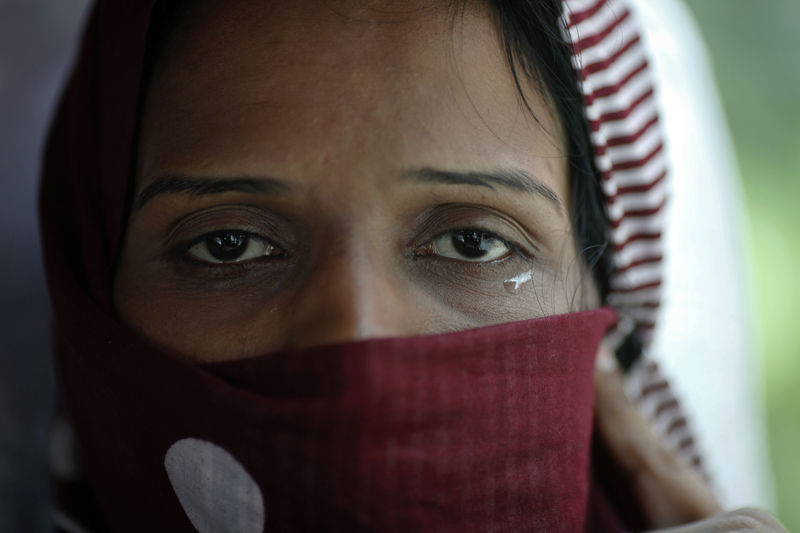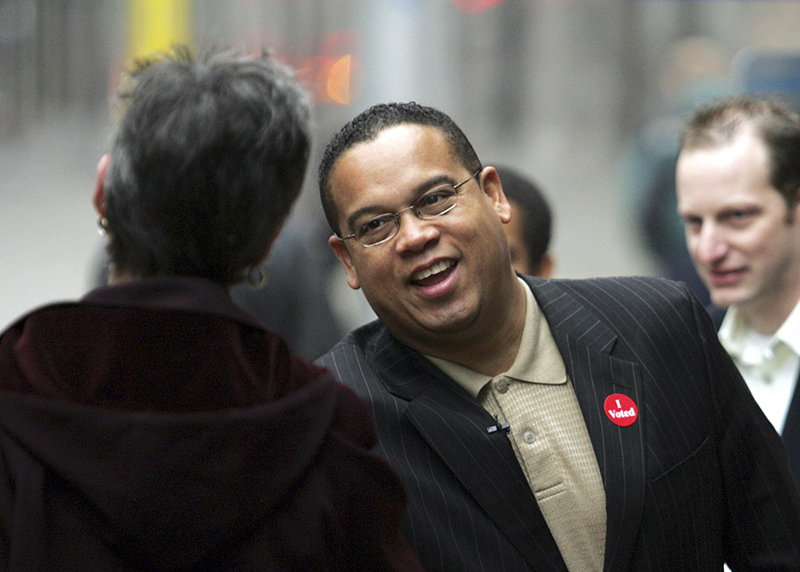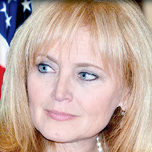
A Pakistani refugee, a member of the Ahmadiyya, an Islamic minority sect, cries as she leaves a detention centre with her family on a bus in Bangkok on June 6, 2011. The Ahmadiyya community in Pakistan is often targeted in attacks by Islamic extremists. Photo courtesy of REUTERS/Damir Sagolj
*Editors: This photo may only be republished with RNS-RELIGIOUS FREEDOM-PANEL, originally transmitted on July 16, 2015.
WASHINGTON (RNS) According to a recent Pew Research Center report, an estimated 77 percent of the world’s population lives in countries where religious freedom is “highly” or “very highly” restricted.
“This, I think, entitles one to use the word ‘crisis,’” said Thomas Farr, director of the Religious Freedom Project at the Berkley Center for Religion, Peace & World Affairs.
The RFP hosted an all-day conference on religious freedom at Georgetown University on Thursday (July 16).
Titled “Religious Freedom: Rising Threats to a Fundamental Human Right,” the conference featured a discussion between U.S. Rep. Keith Ellison of Minnesota, the first Muslim member of Congress, and Katrina Lantos Swett, of the U.S. Commission on International Religious Freedom. Baylor University President Ken Starr served as moderator.

Keith Ellison, Democratic candidate for Congress, greets commuters at a light rail stop in Minneapolis on November 7, 2006. After his election, Ellison became the first Muslim in Congress as well as the first black representative from Minnesota. Photo courtesy of REUTERS/Eric Miller
*Editors: This photo may only be republished with RNS-MUSLIM-POLL, originally transmitted on July 14, 2015.
Ellison commented on the importance of protecting minority religions. He noted that he would be working on Friday (July 17), a day Muslims around the world will take off to celebrate Eid al-Fitr, marking the end of Ramadan.
“In implicit ways,” he said, the U.S. “is a Christian country. You find that out if you happen to not be Christian.”
He cited the Ahmadiyya community of Pakistan. Its members consider themselves Muslim, but the Pakistani Constitution does not.
“Freedom of religion implies the freedom to be unorthodox,” Ellison said. “Though I am a Muslim, God might inspire me to understand Islam slightly differently from some other Muslims.”
According to Lantos Swett, addressing issues like these should be a top priority for U.S. policymakers.

Katrina Lantos Swett, head of the U.S. Commission on International Religious Freedom. Photo courtesy USCIRF
“My experience, as someone who’s been involved in human rights more broadly and religious freedom specifically, has been that there’s a tendency to put (religious freedom) in its little box and at certain convenient moments that little box is brought out and put out on the table and some nice platitudes are said,” Lantos Swett said. “… I would make the case very forcefully that it’s in our interest to put religious freedom right in the middle of our security strategy, our foreign policy strategy.”
YS/MG END WEISSMAN




